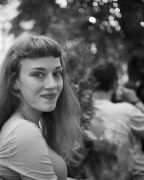Authors
Goda Damaseviciute1; 1 Vilnius University, Lithuania Discussion
Childhood in Lithuania after the break of the Soviet Union was formed between two poles - socialism and capitalism. These interacting poles changed the entire social, cultural, and economic environment, as well as everyday practices. One of those was children’s autonomy and activity in public spaces. Despite the fact that transformative societal processes are broadly analysed themes, the life experiences of children are not thoroughly researched. Modern parents assert that they enforce stricter limitations on their children's access to public areas compared to their own childhood, primarily due to concerns about their children's safety. In order to explain this change, the experiences of the generations that grew up at the beginning of Lithuania’s Independence are being studied. The main focus of this presentation is on interrelations between children and their social environment, focusing on concepts of threats that defined children's autonomy and their use of public spaces, during the Transformation period in Lithuania. The main research method is biographical interview analysis. Theoretical approach is taken from George Herbert Mead’s socialisation theory and Karl Mannheim’s generational theory. The aim is to show which contexts and concepts affected children's perception, activity, mobility and experiences in their everyday spaces. Data from biographical interviews with people born in the period 1980-2000 reveal that feelings of insecurity were a formative factor for children's everyday activities. Territory, children’s mobility, control exerted by parents or other adults and interactions between different groups were significant factors that reflected in their biographies. 

